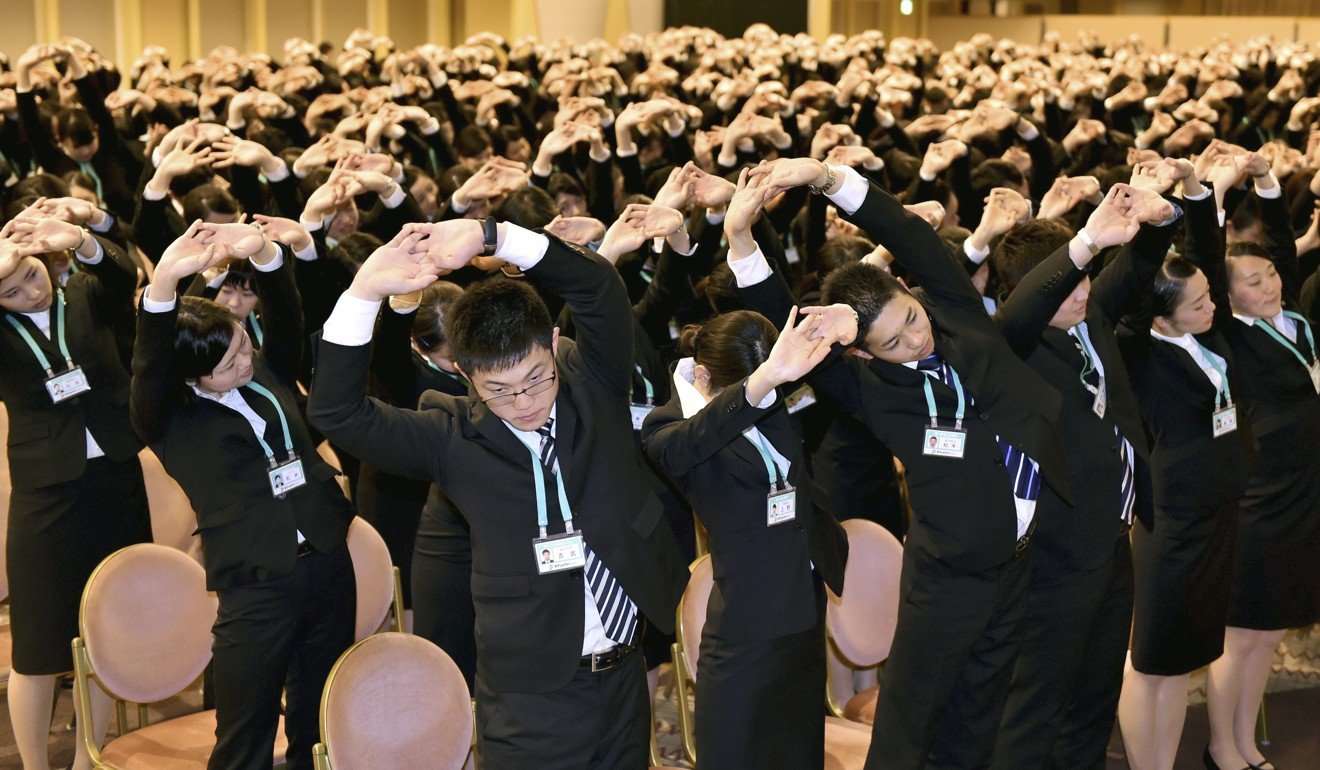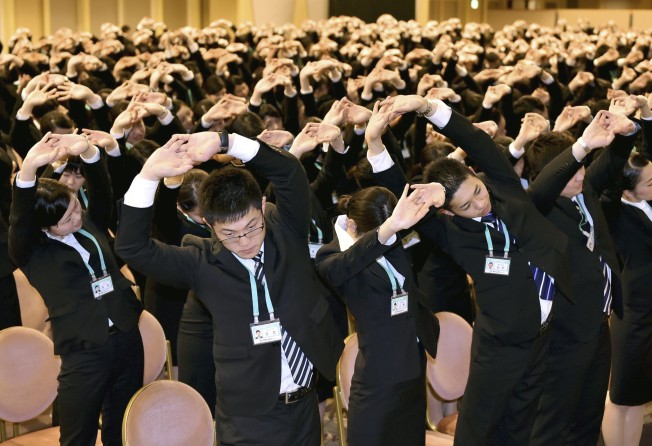
Japan tries to get overworked nation to take a holiday
Studies cite heavy workloads and inconvenience to colleagues as reasons why Japanese workers decline to take allotted holidays

Politely asking Japanese employees to take more of the annual holidays that they are entitled to has fallen flat.
So the Japanese government is to introduce incentives for companies to encourage them to make their staff put their feet up.
The government will introduce a system of rewards for firms where workers take more time off as part of a broader effort to improve the work-life balance of average people.
Another part of the scheme will be the introduction of “Kids’ week,” during which children in different parts of the country will get time off in addition to existing school holidays and parents will be encouraged to take days off work to spend together as a family.
Japanese workers took 48.7 per cent of the holidays to which they were entitled in 2016, equating to 8.8 days of their annual paid holidays. That figure was fractionally down from the 48.8 per cent of holidays they could have taken in a similar study conducted three years previously, despite efforts to encourage people to take their full entitlement of vacation days.

The government has now set a target of increasing that figure to 70 per cent by 2020.
Responsibility for staff not taking their annual leave lies partly with companies and partly with the employees themselves.
Facing uncertain economic times and growing competition, Japanese companies are demanding more from their staff. “Karoshi,” the Japanese term for death by overwork, used to be primarily a concern for older employees, but it is increasingly felling young staff who are expected to put in as many as 100 unpaid overtime hours a month.
A study by the Japan Institute for Labour Policy Training has found that 60 per cent of workers declined to take their allotted holidays on the grounds that it would “inconvenience their colleagues”. A further 53 per cent said they had no opportunity to take time off due to their heavy workload.
Japan’s ongoing economic problems also mean that employees who do take vacation days fear they will be perceived as not being committed to the company’s well-being.
At present, employees are entitled to a minimum of 10 days paid leave annually, with that figure increasing one day for every year that they work to a maximum of 20 days a year.
And while the Labour Standards Law requires that firms grant paid holidays, the assumption is that employees request that leave. If they fail to do so, the company is not violating the law.
The Tokyo Metropolitan Government has already taken measures to force its employees to work less.
Less than a month after her election as Tokyo governor in August last year, Yuriko Koike ordered municipal employees to leave work by 8pm and set up Overtime Prevention Teams to usher anyone lingering over their desks out the door.